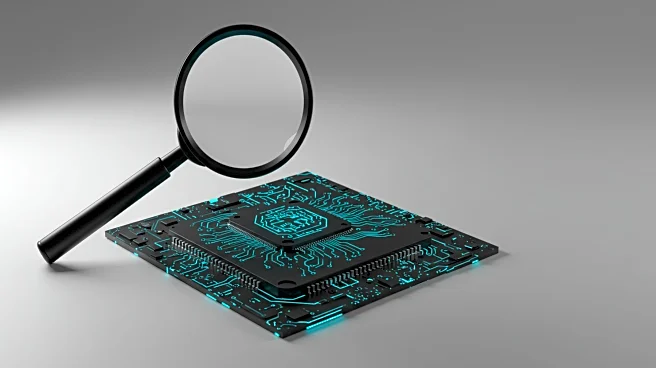What's Happening?
The profession of internal auditing is undergoing significant transformation due to the rapid integration of artificial intelligence (AI). AI is reshaping industries and workflows, presenting both opportunities and challenges for internal auditors, who are traditionally seen as guardians of organizational trust and risk assurance. The profession faces the challenge of evolving quickly enough to remain relevant in the face of intelligent automation. A recent Wall Street Journal article highlighted how AI is altering the job market for college graduates, changing the definition of entry-level jobs. Graduates now need to demonstrate skills that AI cannot replicate, such as critical thinking, relationship acumen, intellectual curiosity, empathy, and ethical resilience. These skills are essential for thriving in an AI-driven world.
Why It's Important?
The integration of AI into internal auditing is crucial as it impacts hiring practices and the skillsets required for new entrants into the profession. As AI becomes a dominant force, internal auditors must adapt to maintain their relevance and value within organizations. The shift in job market dynamics means that graduates must possess advanced skills to add immediate value to organizations. This transformation could lead to increased pressure on chief audit executives to leverage AI for efficiency and productivity, potentially reducing the urgency for developing new talent. However, the profession must focus on promoting human skills that AI cannot match, ensuring that internal auditors continue to play a vital role in organizational success.
What's Next?
The Institute of Internal Auditors' Vision 2035 report emphasizes the need to attract and retain new talent in the profession. It identifies barriers such as lack of student understanding and inadequate networking opportunities. As AI adoption accelerates, the profession must act quickly to counter the threat by preparing graduates with advanced skills. The immediate task is to build awareness and appreciation for internal audit superpowers within executive management and boards. Long-term, educational institutions must evolve to deliver graduates equipped with these skills, ensuring they are prepared to deliver immediate value in an AI-driven environment.
Beyond the Headlines
The ethical and cultural dimensions of AI integration into internal auditing are significant. As AI changes the job market, there is a need to balance technological advancements with human-centric skills. The profession must address the ethical implications of AI-driven decision-making and ensure that human values remain central to organizational processes. This shift requires a strategic vision that aligns technology with human skills, fostering a culture of continuous learning and adaptation.










